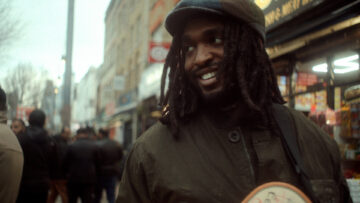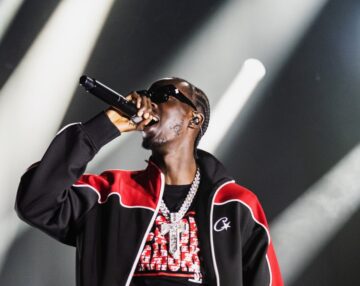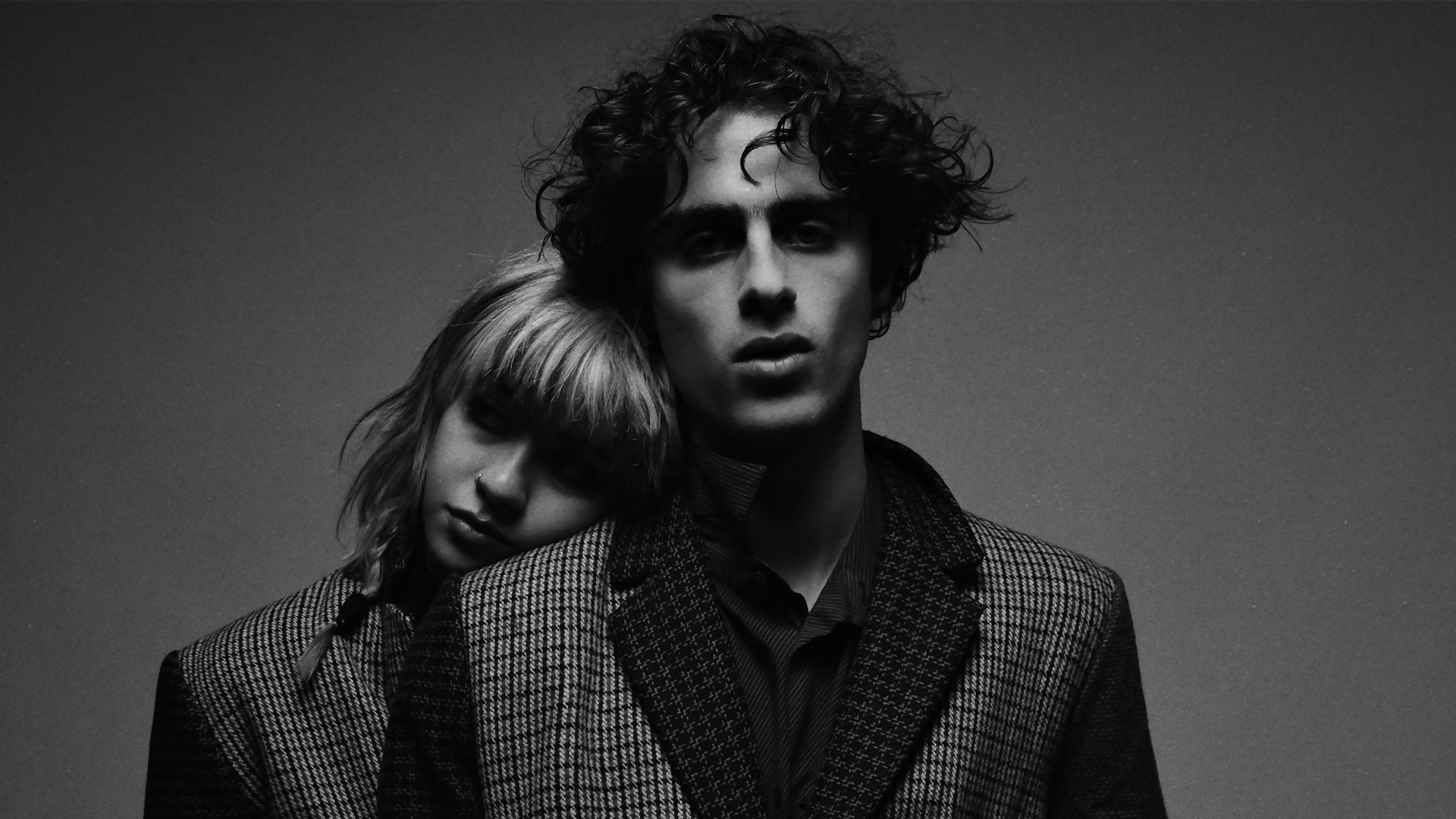
Compelling Atlanta duo Lowertown have come a long way since Avsha Weinberg would look over at Olivia Osby’s computer in maths class to see what she was listening to, sparking their mutual bond over music.
Currently embarking on a North American tour with beabadoobee, they’ve also supported Wet Leg and have a handful of well-received releases to their name, with Olivia’s emotive lyricism rippling beneath Avsha’s accomplished, often moody instrumentalism.
With their debut full-length album out now via esteemed label Dirty Hit, I Love To Lie, we speak to the pair about the Atlanta scene they developed in, working with respected producer Catherine Marks, and life on the road.
Hello, how you doing?
Avsha: Good, sorry we’re a little late. I twisted my ankle.
Your ankle’s more important than this interview. Do you need to go to hospital?
A: No, no, I wear really big shoes, took a step down the stairs and just twisted it.
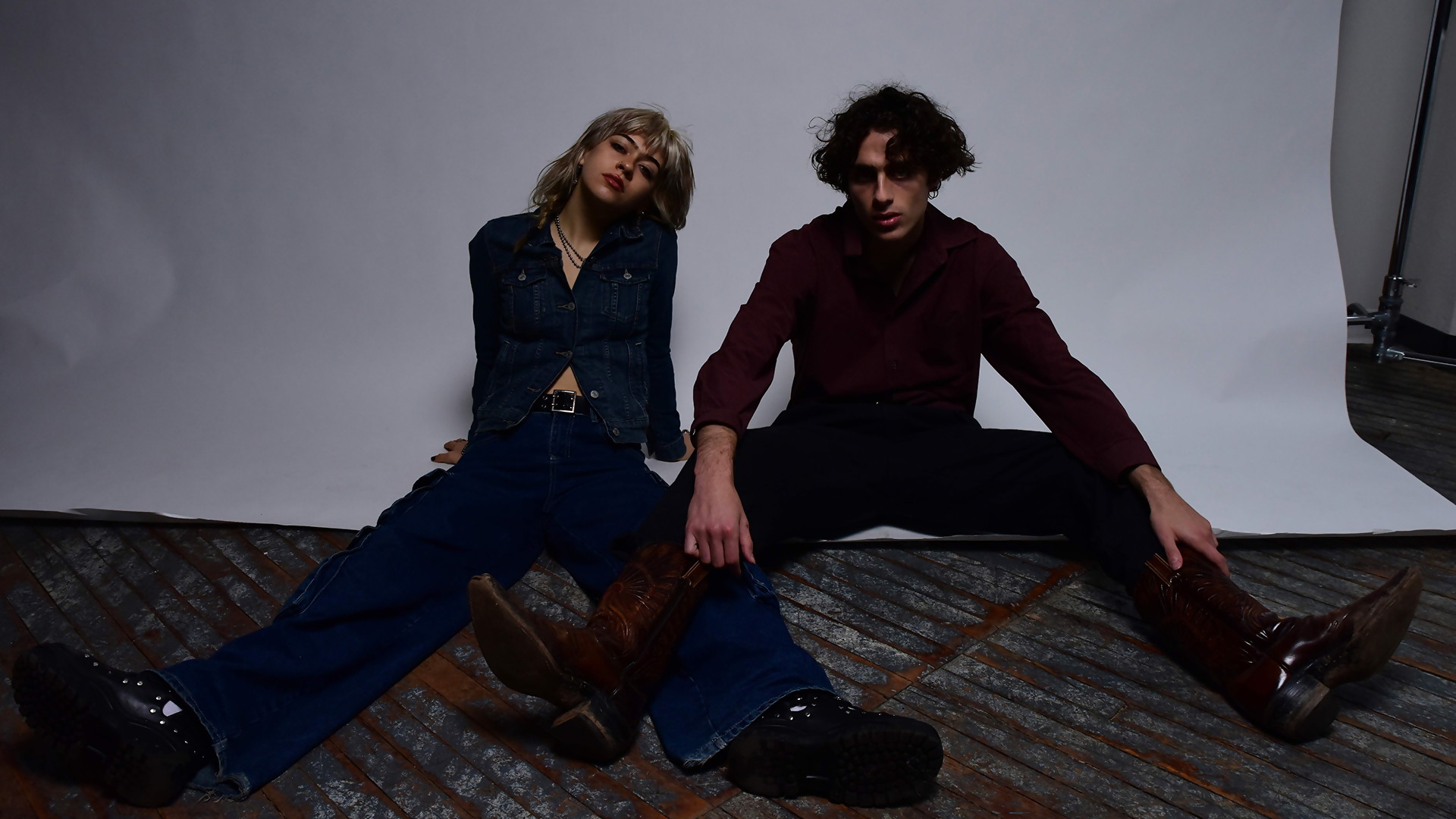
Okay, if you start feeling faint then by all means leave… So how did you guys meet and form Lowertown?
A: Olivia came to my school in the sophomore year of high school. We ended up sitting next to each other – we were in the same friend groups but hadn’t really talked to each other. There was a while where I was looking at her computer, seeing the music she was listening to, and we’d have small talk conversations about the music we were interested in. That was where it started.
What kind of music were you bonding over?
A: The big one I remember was The Microphones. That was the first band I think she put me on to; I wasn’t so big on the emo scene, but she was way into that.
Had you both been musical before you created Lowertown?
Olivia: We both had our side projects and had been in a bunch of different band projects before. [Avasha] was in a band with some college students in Georgia and was in a band in our high school. I’d only done solo stuff, I’d never worked with anyone before. I just did very secret things in my room that I posted online, and wasn’t experienced in collaborating or anything.
A: I definitely had a big musical childhood. I started playing classical piano when I was three or four. My dad’s very musical, he plays jazz piano. So I was big on music from when I was young; I started recording my own stuff at the end of middle school.
Was there an instant click or did it take time for you to form and develop Lowertown?
A: It definitely took time – in coming to the realisation of knowing we wanted to write music together, and it took a bit of time for our friendship to grow. We got to be really, really close friends at the end of high school. We took a trip to Canada and I showed her a couple of my demos and asked if she’d like to sing on some of them. That’s our namesake as well: Lowertown, in Canada. We had a monumental experience on our trip to Canada, in Lowertown. We were chased by a bunch of people…
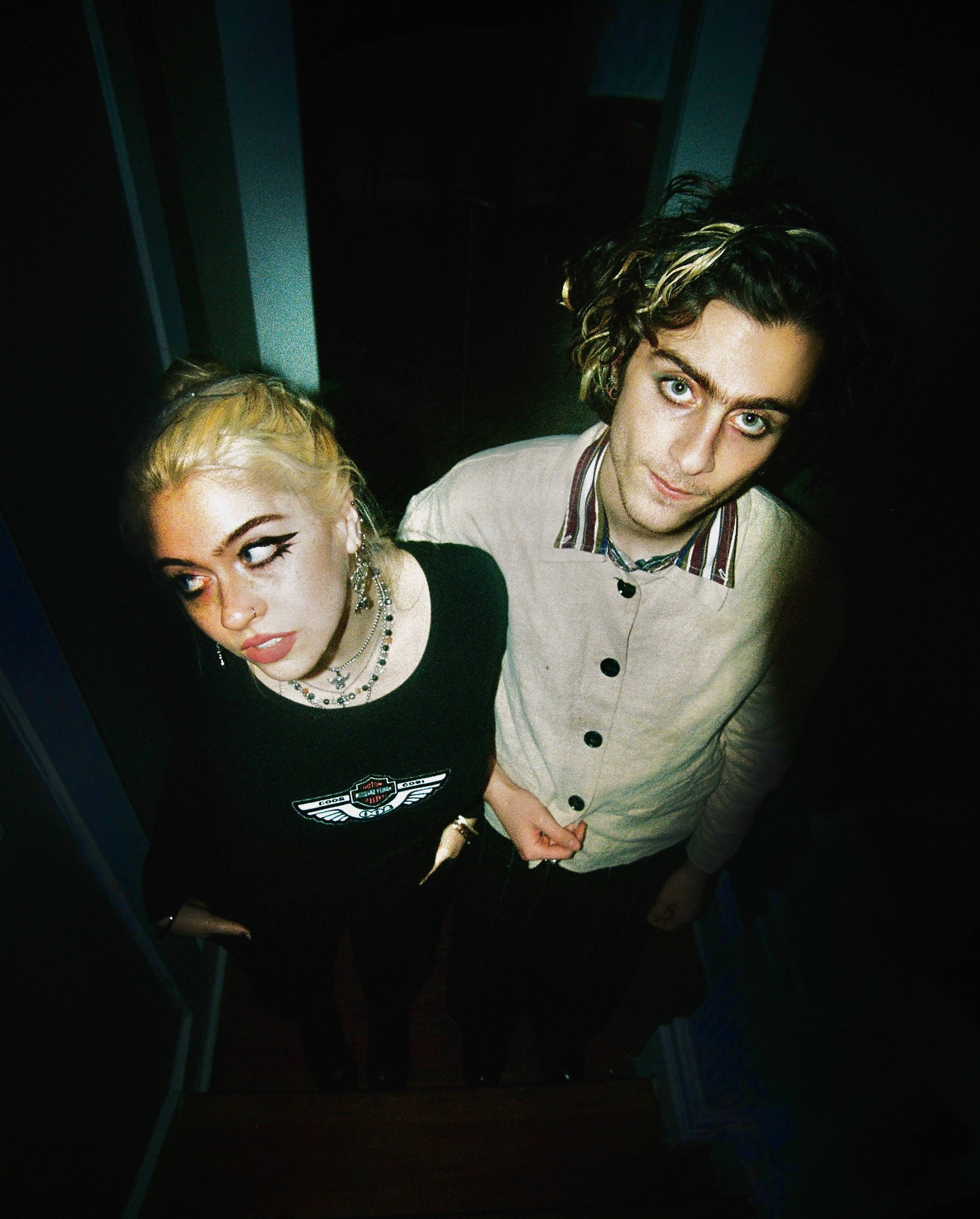
You were chased by a bunch of people? Explain.
A: We first landed in Canada and wanted to go to a body of water. We just looked on Google Maps and ended up in Lowertown.
O: It wasn’t the nicest part of town…
A: No, it was not. And we got chased by a bunch of people. It was shocking. But on that same trip is when I showed [Ava] my demos and we wanted to play music together.
That answers the question of how you got your name. You’re based in Atlanta, though. What was the scene like that you developed in?
A: It’s pretty complicated, honestly. The Atlanta scene, in terms of indie music, has had its ups and downs. There was a really big peak right before we came onto the scene. There were all these really great bands and a lively and active scene with many venues. Then a lot of the venues started to shut down, people got older and stopped doing it so much. That’s when we came on the scene. The trajectory of music in Atlanta then had shifted greatly towards surf-rock.
O: Like stoner rock, chill vibes.
A: Yeah, like dad, stoner, spliff rock, which is not our thing. We were kind of the youngest ones on the scene for a long time. We’re still pretty much the youngest on the scene.
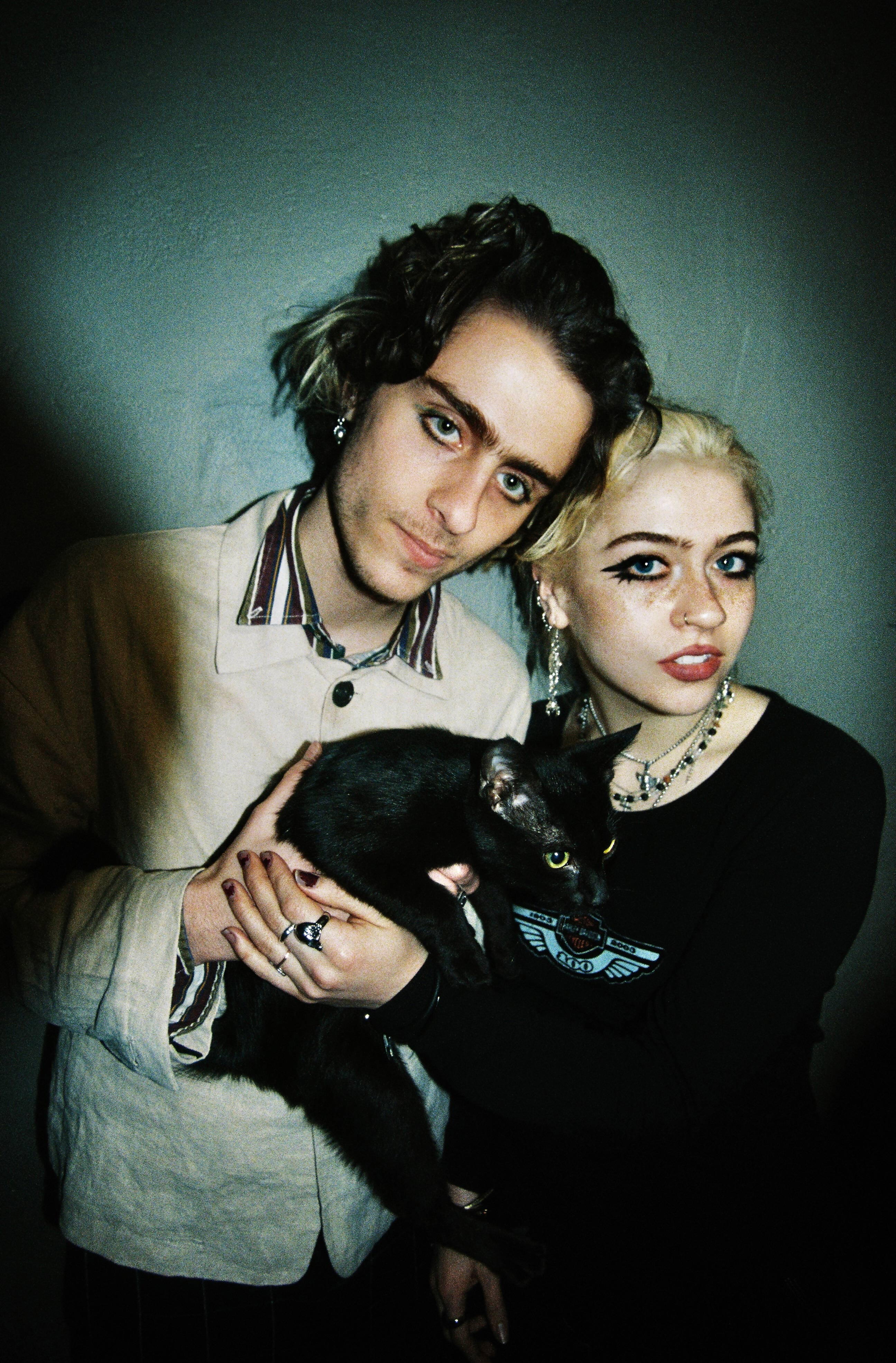
Congrats your new record. I’ve enjoyed the track ‘Antibiotics’ in particular. It has quite a troubled story behind it, is that right?
O: I think that’s the oldest song on the record. I wrote that about the first big breakup I got out of. Thematically, it’s about the fact my partner just wouldn’t let go and would do things to keep holding on to this thing that was dead, and do all these things to make me feel bad for him. It sounds mean, but it was quite pathetic, because he wouldn’t let it go. Everything he did to try to keep the relationship going was very manipulative, and it wasn’t healthy.
The relationship itself was really toxic, so [the song’s] also just talking about the clarity I felt after getting out of this relationship and realising how poisoned I was by this thing. Also, during that time, I was really sick because he had black mold in his house. I was at his house multiple times a week and slowly got so sick.
I basically had walking pneumonia for two to three months, or something like that; there were some days where I was hacking my lungs out, I could barely talk. The second I cut him off and stopped coming over, I physically and mentally got a lot better. It was funny how those things just worked in tandem.
Yeah, you needed that perspective. Your track ‘Bucktooth’ tackles different issues, this time political – not least around gun control. Could you just explain what that track’s about and how it came to be?
O: That one, honestly, became more political than we’d intended. We were in London this time around, recording this record; whenever we’re there, I get really homesick for America. I was listening to a lot of American folk music and old country music like Johnny Cash.
I really wanted to write a silly song because our songs are so sad or really intense a lot of the time. So I ended up writing this song and not really thinking about the political implications of it. At the same time we wrote it, all the riots and stuff were happening around that time.
A: It was when the insurrection happened. The election had happened, and the stuff was boiling over – everyone was talking about it, including in London… I remember when we were first writing it, initially it was about Olivia’s family, who are from pretty rural Georgia. So, initially, I remember her wanting to do a song that was a bit of an ode to her time being with her family there. But it ended up taking on this other role as well.
You mentioned you recorded the album in London. Why? And what did that do, if anything, to the recording process?
A: It did a lot to the recording process and to ourselves when we were writing it. The label has a studio there, but we also really wanted to work with Catherine [Marks] again. She’s UK-based, and we wanted to go wherever she was. We’re pretty sensitive and introverted songwriters so need to be around people who we feel comfortable with or we really know.
A: I will say a lot of the sad songs came from being in London.
In the grey, miserable, rainy London. Makes sense. That’s interesting to talk about your previous releases. How do you feel this album compares to previous records you’ve put out?
A: I think this is the best reflection of ourselves right now. We were talking before about how our projects are at their best when they are reflecting our feelings and thoughts at the time of recording or at the time of writing. Each record has been a pretty good reflection of that – I guess that’s pretty obvious – but our earlier stuff was about being younger and navigating growing up. I think this record feels like our best reflection of the full scope of our feelings and thoughts right now.
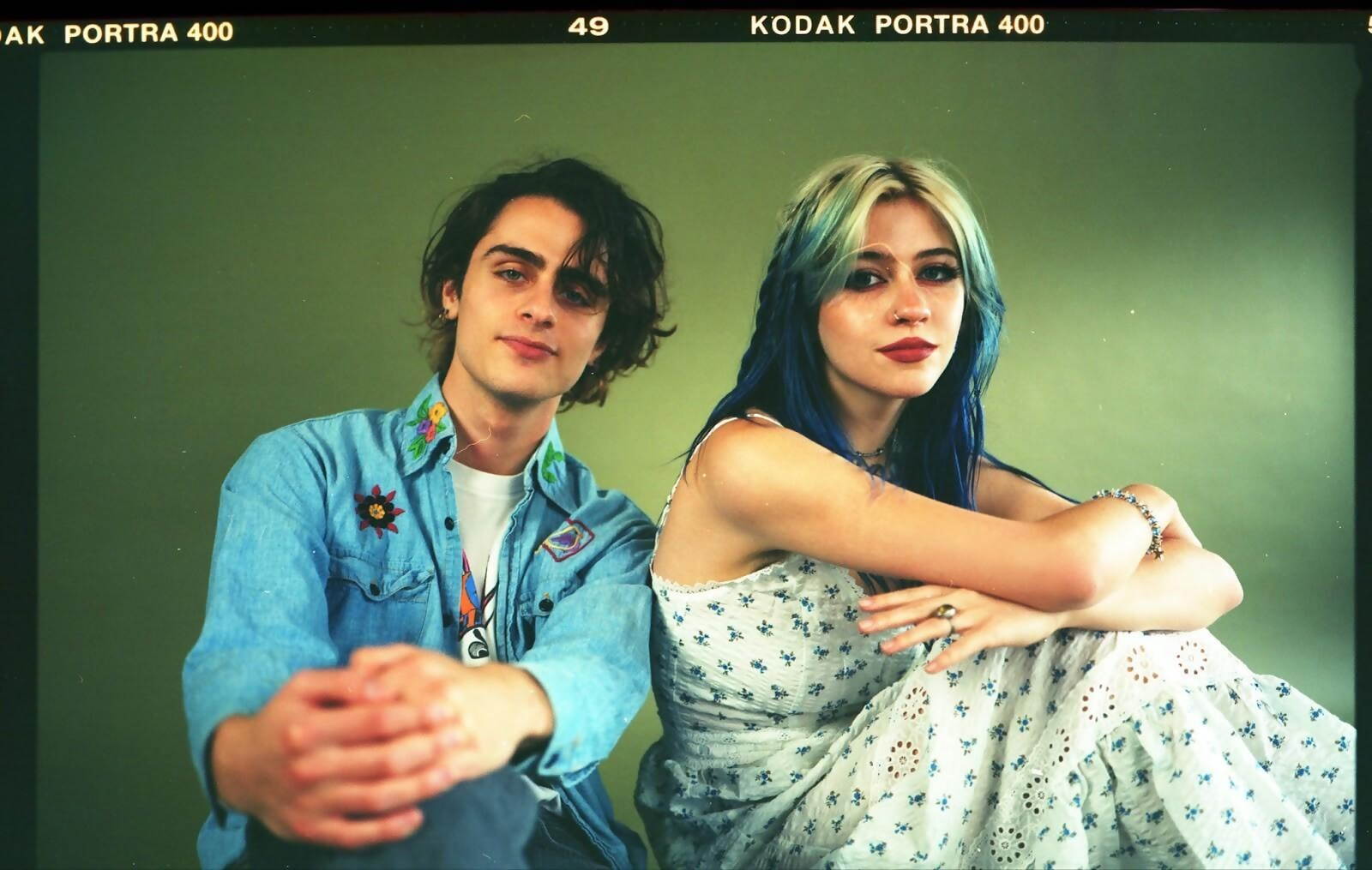
O: Yeah, I think for me, I’m now at the place as a musician where I can make something that captures a feeling. I can never make something exactly how I want it to sound, just because I’m not at a place in my musicianship, but I think this is the closest we’ve made where I can actually say, ‘This is what I’ve been wanting it to sound like this whole time.’
In terms of your guys’ live shows and gigs, how’s that been for you? Because obviously for a couple years, we had COVID. How far developed do you think you are in terms of live shows?
A: Live has been really exciting to flesh out. I think that’s been the source of a lot of our joy and agony lately. We originally started playing as a two piece where Olivia would play the guitar and sing, and I would play the guitar, the drums; I’d have a stand-up drum set and like a guitar, a synth and would sing backup vocals.
It looked really cool, it didn’t sound very good. So we’ve developed it over the years, we’re now a four-piece. We had a couple of shows before COVID but we didn’t get a chance to really play the scene until after. But after COVID we got a real chance to put something together. Some days I feel I love it, and some days I’ll hate it. But we’ve really fleshed out a lot into a four-piece with these last couple of tours.
How did it feel supporting Wet Leg?
A: Yeah, it was really crazy. That was our first tour ever. It was a really shell shocking experience because we were not only learning how to tour, but how to manage being on the road, and also playing all these sold out shows – almost all of them were sold out in these really huge venues with this buzzy band.
O: Yeah, we didn’t have a tour manager or anything, so we were just schlepping about for a month, which was crazy.
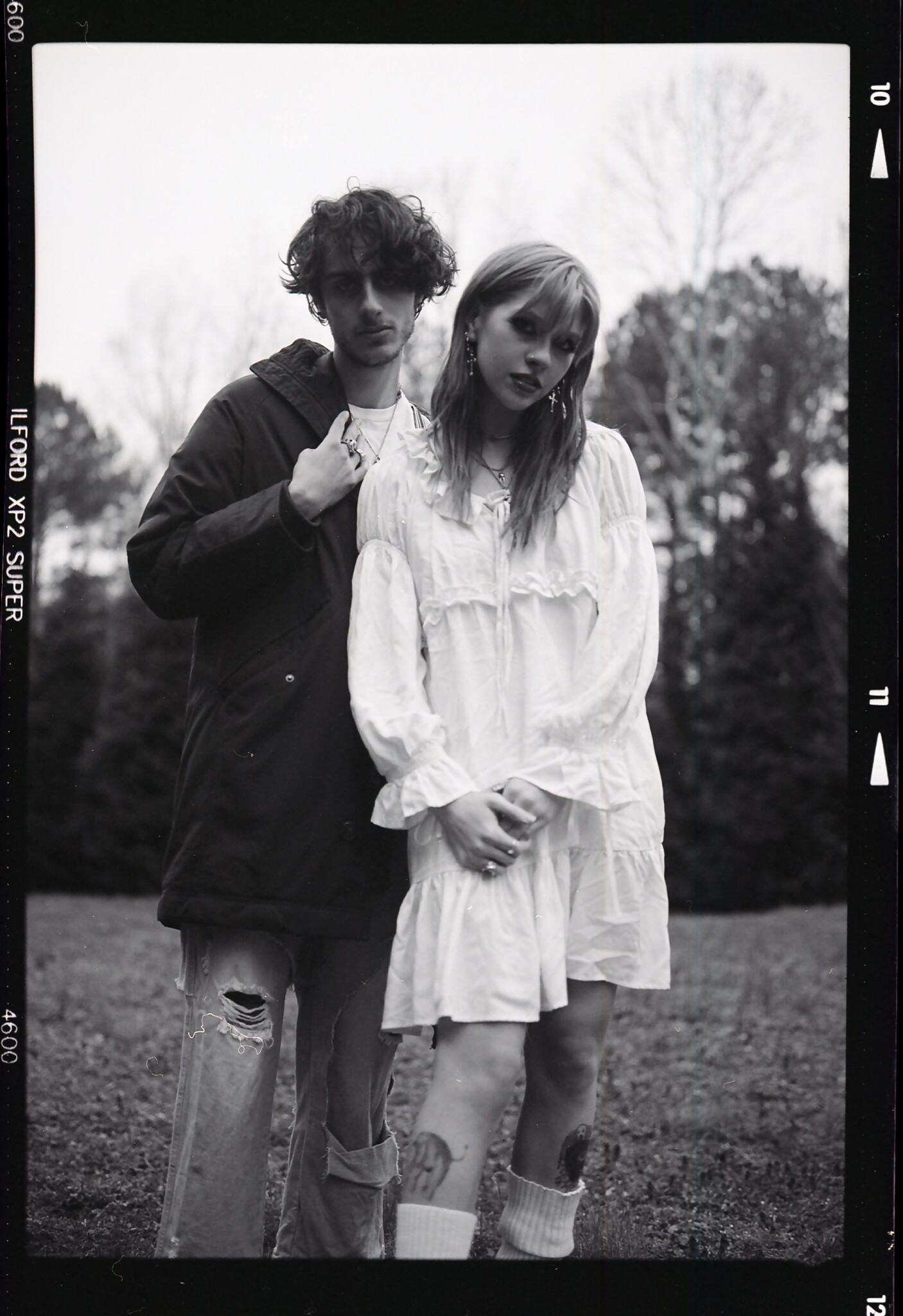
Impressive. You must have learned an awful lot about every aspect of touring life.
O: Yeah, we are definitely well versed in the inner workings of how to tour now. We have a tour manager that’s going to come along with us for future tours. But it was a lot. And we were also mixing the record on our first tour, so it was like a million things at once. We were really grinding for those ones.
A: We’d get up in the morning and get on the road really early. Catherine was in the UK, we were virtually mixing because we didn’t get to finish the record in the studio, or the mixing and stuff because a bunch of things happened; we got COVID near the end of being in London. So we would be on tour and we’d wake up and Catherine was already five hours ahead of us. For as long as Catherine was in the studio and we were in the car, we would send back notes and mixes. Then we’d finally get to the venue, play the show, find a place to sleep, and do it again the next day.
How are you guys dealing with that intensity?
A: There are points were I’m looking in the mirror, thinking ‘I didn’t have these wrinkles before we did this job’. But I think we gotta do what we’ve got to do and I love it.
O: I like it. I like being really busy. There’re some days where I can’t handle it and feel really overwhelmed, like I can’t keep on top of important things like mental health and basic stuff – I think I sacrifice myself for work sometimes. Then other days, it’s awesome. I love dedicating myself fully to working on this. I’m someone that likes to stay busy and get completely sucked into what I’m doing. I really care about everything with our band, so it’s nice to just put all myself into something that I genuinely care so much about and see it pay off.


